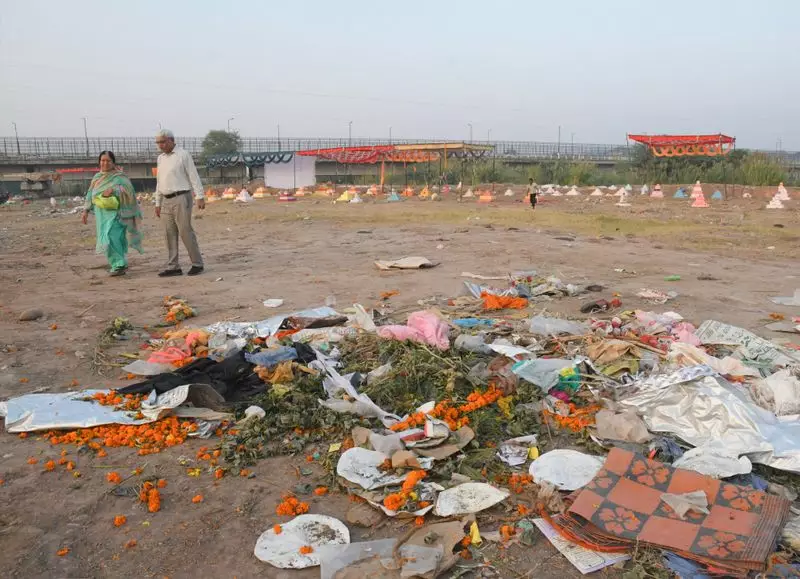
In a shocking display of environmental neglect, devotees celebrating Chhath Puja along the banks of the Ghaggar River in Panchkula were forced to perform their sacred rituals surrounded by heaps of untreated garbage and plastic waste. Despite repeated assurances from municipal authorities about cleanup efforts, the riverbanks remained littered with dangerous debris, creating both health hazards and spiritual concerns.
Sacred Rituals Meet Environmental Reality
Hundreds of devotees gathered at the Ghaggar riverbanks for the four-day Chhath Puja festival, only to find themselves navigating through piles of mixed waste, including plastic bags, packaging materials, and other non-biodegradable items. The stark contrast between the purity-seeking rituals and the polluted environment highlighted the administration's failure to address basic sanitation needs.
"We come here seeking spiritual cleansing, but how can we find purity in such filth?" questioned one distressed devotee, who had traveled from Chandigarh to perform the traditional offerings to the Sun God.
Administrative Promises Remain Unfulfilled
Local residents and environmental activists revealed that the Municipal Corporation had promised extensive cleaning operations before the festival season. However, eyewitnesses confirmed that minimal efforts were made, leaving the riverbanks in their usual polluted state.
The situation becomes particularly critical during religious festivals when water bodies see increased footfall. The Ghaggar River, which flows through multiple states, has been suffering from prolonged neglect and inadequate waste management systems.
Health Hazards Multiply
Public health experts expressed serious concerns about the potential health implications:
- Direct contact with contaminated water during rituals
- Air pollution from burning garbage near residential areas
- Risk of waterborne diseases spreading through the river system
- Potential contamination of groundwater sources
Community Demands Immediate Action
Local environmental groups have called for urgent intervention from higher authorities, including the National Green Tribunal. They demand:
- Immediate cleanup of riverbanks
- Installation of permanent waste management infrastructure
- Regular monitoring and maintenance
- Public awareness campaigns about river conservation
As the festival concludes, the lingering question remains: how long will religious devotion have to coexist with environmental degradation? The Ghaggar River situation serves as a stark reminder of India's growing waste management crisis and its impact on both cultural practices and public health.






